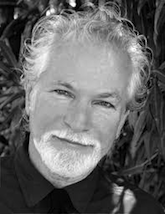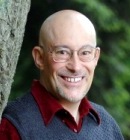
- Dudley A. Schreiber (South Africa): On the Epistemology of Postmodern Spirituality.
- From Anthropology of this Century, Chris Hann (Max Planck): Personhood, Christianity, Modernity; and facing religion, from anthropology: Michael Lambek on the making of distinctions between the religious and the secular.
- From Christianity Today, Jenell Williams Paris responds to Mark Noll: Why it's good that evangelicals have not, and likely will not, develop an "evangelical mind"; Carolyn Arends on defending Scripture — literally: Not everything the Bible has to say should be literally interpreted, but that doesn't make it less powerful; an interview with Eric J. Bargerhuff, author of The Most Misused Verses in the Bible: Surprising Ways God's Word Is Misunderstood; and an interview with Alvin Plantinga, author of Where the Conflict Really Lies: Science, Religion, and Naturalism.
- From New Scientist, a special issue on God and the new science of religion.
- A review of Born Believers: The Science of Children’s Religious Belief by Justin Barrett.
- Analytical thinking erodes belief in God: Our intuitive thought processes, which underpin supernatural beliefs, can be overcome by thinking analytically.
Abstract
At first glance, the postmodern spiritual ‘scene’ appears ‘sociologically messy, experiential, multifaceted, ecological, provisional and collective’ (Petrolle 2007) and of uncertain epistemic provenance. Here, I ask: can Roland Benedikter’s (2005) conception of postmodern dialectic and spiritual turn, help us understand postmodern spirituality and can it assist in a construction of a postmodern epistemology of spirituality? The current argument constitutes a meta-theoretical exploration of:
In the conclusion an attempt is made to describe how postmodern spirituality expresses itself in society.
- Deconstruction and neo-essentialism as representing the significant dialectic in philosophical postmodernism. Deconstruction is presented as an apophatic moment in Western thought about ‘knowing’ and ‘being’ whilst postmodern neo-essentialism, though contextualised by antirealism and ambiguity, palpably suggests itself.
- Postmodern trends which derive from the dialectic.
- How these epistemic trends influence methodology in the study of spirituality.
- How a trans-traditional (anthropological) spirituality might incorporate insights about transformation from a complex of epistemologies in which, theories of ‘self’ abound.
Citation:
Schreiber, D.A. (2012). On the epistemology of postmodern spirituality. Verbum et Ecclesia, 33(1), Art. #398, 8 pages. http://dx.doi.org/10.4102/ve.v33i1.398
Schreiber, D.A. (2012). On the epistemology of postmodern spirituality. Verbum et Ecclesia, 33(1), Art. #398, 8 pages. http://dx.doi.org/10.4102/ve.v33i1.398
Full Text: PDF (423 KB) HTML EPUB XML
Here is a excerpt from the article - the author makes reference to Ken Wilber's integralism, as well as Jean Gebser. As a fan of integral theory, in general, it's nice to see it mentioned in an academic article on postmodern spirituality.
Introduction
Postmodern spiritual turn as the epistemic context for postmodern spirituality
If spirituality is at all times embedded in its time and place in the world and takes its language of meaning ascription from context (Lesniak 2005:7; Corkery 2005:26), how might postmodern insight enrich a contemporary understanding of spirituality across the ‘three worlds’ of knowledge (Mouton 2011:137), namely meta, epistemic and lay? Might postmodern philosophy be said to exhibit rational parallels to dynamics within trans-traditional spirituality? What experience of truth are we to speak of and how are we to speak of it? How might postmodern discourse on knowledge inform us about the experiential inward path of knowing characteristic of mysticism (McGinn 2005:19)? Thinking about spirituality, as do Schneiders (2005:1) and Sheldrake (2005:38), implicates us in contemporary myth, epistemology and general science. Elements of postmodern epistemic landscape suggest a sense of reality that confronts us ‘with the enigma of existence itself’(Benedikter 2007:5) and the many challenges to knowing anything. Yet how might academic spirituality, relatively newly ensconced in the Human Sciences, build theory that is truly contemporary?
Postmodern epistemic trendsAlthough no universal agreement and no monolithic Postmodern Epistemology exist, Benedikter (2005) suggests the primary dialectic lies between deconstructionism (late 1970s to about the late 1990s) and a later constructivist neo-essentialism from 2001 onwards. Deconstruction as a trend, targets both premodern notions of metaphysics and ontology, and modernist realism, in a wide range of narratives. Narratives receiving greatest attention include rationalism, logical positivism, determinism and a gamut of progressively aggressive, externalist and positivist-styled creeds and paradigms (hegemonies) of materialism and domination, which had found their expression through the three worlds of knowledge and across the Western epistemic landscape. The meteoric rise of post-structural critique in the works of the French School of Continental Philosophy up to Foucault constituted a profound attack on former confidence in how history and society work. Furthermore, with the publication of Thomas Kuhn’s (1962) The Structure of Scientific Revolutions (cf. also Bird 2004), Modernism’s pride in Physical Science as its chosen and privileged epistemology came under devastating scrutiny. Lest we over simplify the epistemic picture, Griffiths (2007:1) suggests that not all sciences suffered to the same extent, noting a rise in interest in the philosophy of biology, which seems to have undergone some linguistic turn. The work of Bradie and Harms (2008) suggests that a contemporary epistemology of evolution posits a mitigated realism, freer from deterministic mindset. Perhaps, presumption of this less deterministic stance accounts for the way some lay conversations about spirituality indulge in naive biologism, and strange notions of evolutionary transformation? The quest for biochemical substrates remains fascinating at a popular level readily informed by science media. Perhaps too, a heightened sense of democracy in the world of lay knowledge provides an appeal to ontologise from below rather than from meta-engagement?
Epistemic parallels? Deconstruction and apophasis Deconstruction as an epistemic trend seems to be a conscious and rational pursuit reminiscent of many traditional spiritual practices that aim to ‘dissolve’ ego-constructs in the history of Christian and Oriental spiritual practice. This in itself suggests at least a superficial parallel in the dynamics of postmodernism and spirituality. It could be argued that despite the numerous obstacles to a glib comparison, both philosophical deconstruction and spiritual dissolution of ego ultimately shadow each other by rendering purely rational knowing somewhat mute, truncated, if not counter-intuitive. Is it an over-generalisation to suggest that the postmodern revolution has brought epistemology close to apophatic crisis? What of the broader context of trans-traditional spirituality in which muteness is enhanced by the influence of Oriental meontic and antirealist thought in the Buddhist strands of Pacific philosophy?
Constructive ontologising In contra-distinction to deconstruction, Benedikter (2005) claims that post-structural neo-essentialism is evident in a ‘broad church’ of thinkers and writers. These, he claims, suggest an ontological realism arising from a boundary of cognitive resistance to deconstructive finality. In paradoxical continuation of deconstructionism, constructive trend exhibits an epistemological project towards a proto-ontology, proto-realism and a proto-spirituality inspired by both oriental and postmodern antirealism. In contrast to essentialist fixity in premodern metaphysics, post-structural neo-essentialism perceives humanity’s vital consciousness as dynamic, evolving and transforming. Cognitive turn seems to provide a shared locus of interest for traditionally divergent, unengaged epistemologies. Interdisciplinary inspiration in Wilber’s (1995) Integral Theory, for instance, shows a multistrand, multihemisphere epistemology at play in trans-traditional spirituality.
There are a couple other references to Wilber, which are more current (from a 2006 article at Integral Life). And then this passage where he makes reference to Jean Gebser:
Toward neo-essentialism? So, where does consciousness travel, once it has deconstructed ego-attachment in the things of illusion? Benedikter’s argument for a neo-essentialist movement in mature postmodernism rests on a number of literary and philosophical references. These differ in their levels and anthropological concerns. A detailed discussion of these differences is omitted in Benedikter and here, for reasons of brevity. The strand that seems common in his reading focuses on the dynamic nature of attention. Benedikter paraphrases Gebser’s (1986) answer to the aforementioned question, thus: ‘Quite plainly, we are still aware that the stream of consciousness continues, as act and activity, pure and active attention’ (Gebser 1986; cf. also Benedikter 2005:iii, 2). What is this dynamic nothingness and borderline something-ness, which is prior to normal ego and suggests the primordial basis of consciousness? Here Benedikter cites numerous authors: Bhaskar (2002) refers to it as ‘pure substance of mankind’ [sic]; Derrida (1995) speaks of ‘the absolute secret’; Foucault (1977) called it the ‘productive void’; Heidegger (1927), ‘ontological occurrence’; and Rand(1947), ‘the fountainhead’. It is quite clear that in the writing of thinkers of the mature 20th century, a new essentialism suggests itself. Postmodernism perhaps, reaches its neo-religious peak in Gebser’s (1986) ‘permanent origin in itself’ and Bhaskar’s (2002) ‘meta-conscious basis of postmodern emancipation and everyday life’.
After deconstructing realism and inner ego-objects, we recognise something behind the eyes (Hay 2006), which although it deconstructs, is itself resilient to deconstruction.
The affirmative phenomenology of meta-consciousness, false-self and true-self Consciousness behind the ego suggests an inner realm of two ‘I’s. We are profoundly paradoxical, fragmented and schizoid, according to Benedikter (2005:iii, 4): ‘If you take deconstruction seriously, you will, sooner or later, encounter the other’. Traditional mystical epistemology speaks often of a conscious, transformative embrace of the Other. Embrace of otherness that is conceivably also nothingness, seems a perennially recurrent mystical experience. In postmodern spiritual epistemology primacy is given to a rationally derived cognitive participation in deconstruction. Psychologically, unconscious expression of ‘non-being’symptomatically gives rise to schizophrenia1 and narcissism in pseudo-spiritualities. Is not the unconscious pseudo-spirituality of modernism materialism? The implicit spiritual injunction to authenticity and wholeness, in various traditions would have us hold and dissolve attachment to selfish realisms, staying in the moment of terror after deconstructive process, to encounter being in a metaphorical post-annihilation. These are of course, terms used in many mystical traditions and referred to often in the writings of Merton (Cunningham 1999), Johnston (2000), Krishnamurti (1954) and Nishida Kitarô (cf. Maraldo 2005).
In his mature work (2003:5–69) published posthumously, Merton refers to the false, collective, alienated exterior and authentic, hidden, real, dark, inner, interior, inmost, awakening selves. Epistemologically speaking it is only in mature postmodernism that we have taken the rational experience of many-selves seriously: grounding real-self by un-grounding false-self. Western true-self and Oriental non-self seem parallel meta-conscious realms arrived at, in deconstructing false-selves.
It's an interesting read (HTML version).





















